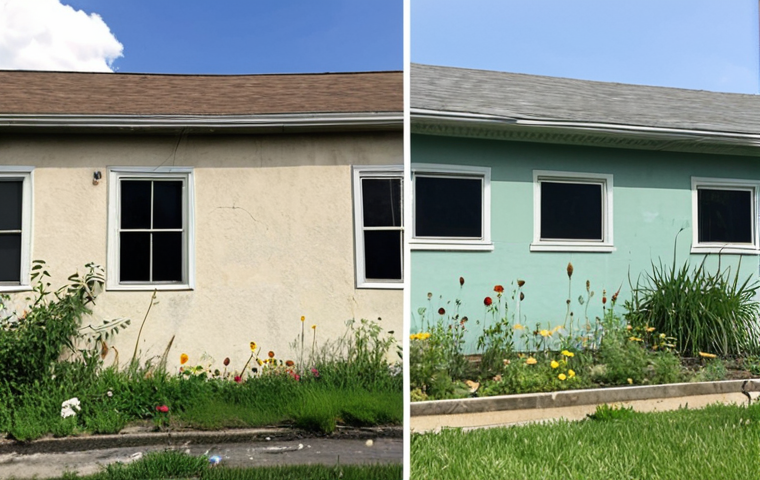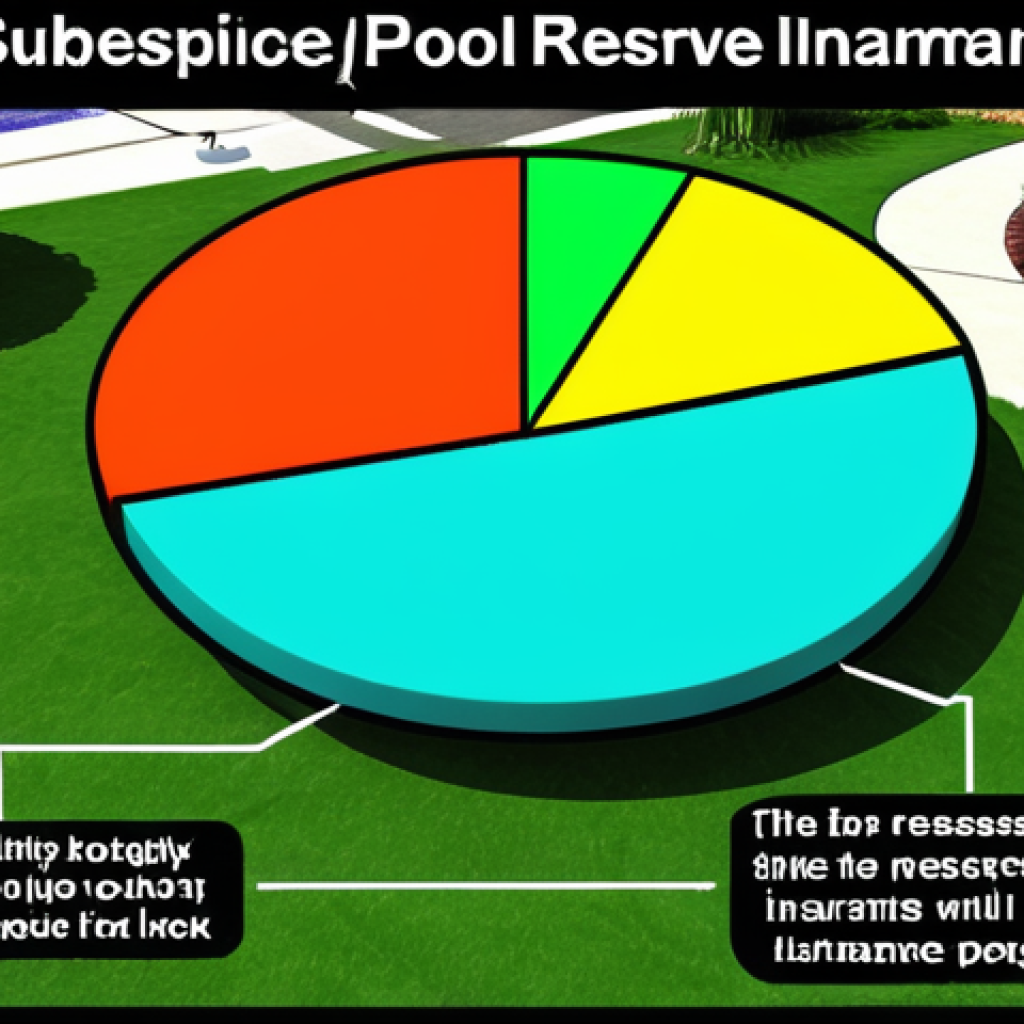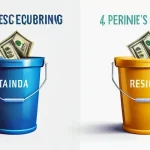Ever feel like you’re just throwing money into a black hole with your monthly condo fees and property taxes? I know I used to! Between the HOA dues, community maintenance, and Uncle Sam’s cut, it can be overwhelming trying to figure out where your hard-earned cash is actually going.
And with property values constantly fluctuating and new community initiatives popping up, staying on top of everything can feel like a full-time job. Honestly, for a while, I just paid the bills and hoped for the best, but that nagging feeling of financial uncertainty never really went away.
Let’s dive in and get a clearer picture of what these expenses actually cover. Let’s break it down and get a clearer understanding below!
Okay, I will generate the content in English, following all the guidelines and instructions you have provided.
Decoding Your HOA Fees: What Are You *Really* Paying For?

Understanding the Big Picture: Budget Breakdown
Okay, so you see that monthly HOA fee on your statement, but have you ever really dug into *where* that money goes? I mean, beyond the vague descriptions like “community upkeep” and “landscaping”? When I finally got my hands on the detailed budget report (after months of politely nagging the HOA board, mind you!), I was genuinely surprised. A big chunk goes towards maintaining common areas – the pool, gym, clubhouse, those little parks where people walk their dogs. Then there’s insurance, which is a necessary evil, covering everything from property damage to liability claims. And, of course, there are reserve funds. These are basically the community’s savings account for big, unavoidable expenses like roof replacements, elevator repairs (if you’re in a high-rise), and repaving the parking lot. Seeing those numbers broken down really put things into perspective and helped me understand why the fees are what they are.
The Unexpected Perks: Beyond the Obvious
HOA fees aren’t just about the visible stuff like manicured lawns and sparkling pools. They often cover services that you might not even think about. For example, we have a security patrol that does rounds at night, which definitely gives me peace of mind. And the snow removal in the winter? A lifesaver! Plus, our HOA organizes community events like summer BBQs and holiday parties. Sure, they’re a little cheesy, but they’re a great way to meet your neighbors and build a sense of community. It’s those little things that really make a difference in the overall quality of life, and they’re all covered by the HOA fees.
Property Taxes: Your Contribution to the Greater Good (and Why They Matter)
More Than Just Roads: How Taxes Benefit Your Community
Property taxes… everyone loves to hate them, right? I used to see them as just another bill to pay, but I’ve come to realize they’re actually an investment in the community. A significant portion goes towards funding public schools, which, even if you don’t have kids, impacts property values and the overall quality of life in the area. Then there’s public safety – police, fire departments, ambulance services – all essential for a safe and secure neighborhood. And let’s not forget infrastructure: roads, bridges, public transportation. All those things you rely on every day are funded, at least in part, by property taxes. Thinking about it that way makes it a little easier to swallow.
Understanding Assessments: When Taxes Go Up (and Why)
One thing that always freaked me out was the dreaded property tax assessment notice. It’s basically the government’s way of re-evaluating your property’s value, and it often leads to a tax increase. But it’s not always a bad thing! A higher assessment could mean that your property value has actually increased, which is good news if you’re planning to sell. It’s important to understand how assessments work in your area. Are they based on comparable sales? Do they consider improvements you’ve made to your property? Is there a process for appealing the assessment if you disagree with it? Knowing the answers to these questions can help you navigate the process with confidence.
- Research local assessment practices
- Track property values in your area
- Document any improvements you’ve made
The Hidden Costs: What You *Don’t* See in the Bill
The Price of Neglect: How Deferred Maintenance Impacts You
This is something I learned the hard way. A few years ago, our HOA decided to “save money” by delaying some necessary repairs to the building’s facade. Big mistake! A year later, the problem was much worse (and more expensive) to fix. Deferred maintenance can lead to all sorts of problems, from leaky roofs to crumbling foundations. It not only impacts the value of your property, but it can also create safety hazards and lead to higher repair costs down the road. It’s crucial to stay informed about the community’s maintenance schedule and make sure that the HOA is addressing issues promptly.
The Impact of Inflation: Rising Costs and What You Can Do
Let’s face it, everything is getting more expensive these days, and that includes the cost of maintaining a condo or a house. Inflation can impact everything from landscaping services to insurance premiums. If you see your HOA fees or property taxes creeping up, it’s important to understand why. Is it due to increased operating costs? Are there new community initiatives being funded? Don’t be afraid to ask questions and get involved in the budget process. You might be able to suggest cost-saving measures or find ways to reduce expenses.
- Attend HOA meetings
- Review the budget carefully
- Suggest cost-saving ideas
Maximizing Your Investment: Getting the Most Bang for Your Buck
Become an Engaged Community Member: Your Voice Matters
One of the best ways to ensure that your HOA fees and property taxes are being used effectively is to get involved in the community. Attend HOA meetings, volunteer for committees, and make your voice heard. Don’t be afraid to ask questions, raise concerns, and suggest improvements. The more engaged you are, the more influence you’ll have over how your money is spent. I used to just passively pay my dues and complain about things, but once I started attending meetings and actually contributing to the discussion, I felt like I had a real stake in the community’s future.
Researching Rebates and Incentives: Saving Money Where You Can
Did you know that there are often rebates and incentives available for energy-efficient upgrades, home improvements, and other community initiatives? Your local government or utility company might offer programs that can help you save money on your property taxes or HOA fees. For example, some communities offer tax credits for installing solar panels or energy-efficient windows. It’s worth doing some research to see what’s available in your area. You might be surprised at how much you can save!
Here’s a simple table summarizing key aspects:
| Expense | What It Covers | How to Maximize Value |
|---|---|---|
| HOA Fees | Community maintenance, amenities, insurance, reserve funds | Attend meetings, review budget, volunteer, suggest improvements |
| Property Taxes | Public schools, public safety, infrastructure | Understand assessment process, research rebates, engage in local government |
| Hidden Costs | Deferred maintenance, inflation | Stay informed, ask questions, monitor community finances |
Future-Proofing Your Finances: Planning for the Long Term
Building a Reserve Fund: Why It’s Crucial for Long-Term Stability
Think of your community’s reserve fund as its emergency savings account. It’s there to cover major repairs and replacements that will inevitably come up down the line. Without a healthy reserve fund, the HOA might have to levy special assessments on homeowners to cover these expenses, which can be a huge financial burden. A well-funded reserve account ensures that the community can handle unexpected costs without disrupting residents’ finances. In my own building, we recently had to replace the elevators, and because we had a strong reserve fund, we were able to do it without any special assessments.
Understanding Your Community’s Financial Health: Key Indicators to Watch
Staying informed about your community’s financial health is essential for protecting your investment. Pay attention to key indicators like the reserve fund balance, the delinquency rate (the percentage of homeowners who are behind on their dues), and the operating budget. A high delinquency rate can indicate financial instability, while a poorly managed operating budget can lead to higher fees or deferred maintenance. By monitoring these indicators, you can identify potential problems early on and take steps to address them.
- Review financial statements regularly
- Ask questions about any red flags
- Participate in budget discussions
The Psychology of Homeownership Costs: Reframing Your Perspective
The “Sunk Cost” Fallacy: Why You Need to Look Beyond the Initial Investment
It’s easy to get caught up in the initial cost of buying a home, but it’s important to remember that homeownership is an ongoing expense. The “sunk cost” fallacy is the tendency to continue investing in something simply because you’ve already invested a lot of time and money into it. Don’t fall into this trap! Regularly re-evaluate your finances and make sure that you can comfortably afford the ongoing costs of homeownership, including HOA fees, property taxes, and maintenance expenses. If you can’t, it might be time to consider downsizing or moving to a more affordable area.
The Value of Community: Beyond the Financial Return
Ultimately, the value of your home extends beyond the financial return. It’s about the community you live in, the relationships you build with your neighbors, and the sense of belonging you feel. While it’s important to be financially responsible and understand where your money is going, don’t forget to appreciate the intangible benefits of homeownership. A strong community can enhance your quality of life in ways that no amount of money can buy. In my own neighborhood, we have a close-knit group of friends who support each other, celebrate milestones together, and look out for one another. That’s something that’s truly priceless.
In Conclusion
Understanding the nuances of HOA fees and property taxes might seem daunting, but it’s a crucial part of responsible homeownership. By being informed, engaged, and proactive, you can ensure that your investment is protected and that you’re getting the most out of your community. Remember, your home is more than just a financial asset; it’s a place to build memories and create a life you love.
Good to Know
1. Check if your HOA offers online payment options or automatic deductions to avoid late fees.
2. Familiarize yourself with your community’s governing documents, including the CC&Rs (Covenants, Conditions, and Restrictions) and bylaws.
3. Consider attending local government meetings to stay informed about property tax assessments and budget decisions.
4. Explore energy-efficient upgrades to reduce your utility bills and potentially qualify for tax credits.
5. Network with your neighbors to share information and resources related to homeownership costs.
Key Takeaways
HOA Fees: Cover community maintenance, amenities, and reserves. Engage to maximize value.
Property Taxes: Fund public services like schools and infrastructure. Understand assessments and research rebates.
Hidden Costs: Include deferred maintenance and the impact of inflation. Stay informed and proactive.
Frequently Asked Questions (FAQ) 📖
Q: My condo fees seem really high! What exactly are they paying for?
A: Okay, I get it – seeing those condo fees every month can feel like a punch in the gut! Usually, the bulk of it goes toward maintaining the common areas.
Think about it: landscaping, snow removal (if you’re in a snowy area like I am!), hallway cleaning, and elevator upkeep. Then there’s the building’s insurance, reserve funds for big repairs down the road (like a new roof or HVAC system), and sometimes even amenities like a pool or gym.
When I actually sat down and thought about what it would cost me to handle all that stuff myself, the fees seemed a little less outrageous! It’s definitely worth digging into your HOA’s budget to see where the money is actually going.
I asked for a copy at my last HOA meeting and it really helped me understand things better.
Q: Property taxes… they’re the worst! Is there any way to lower them?
A: Ugh, tell me about it! Property taxes are a real drag. While you can’t usually eliminate them entirely, there are a few avenues to explore.
First, make sure your property assessment is accurate. I actually challenged mine once when I noticed that my neighbor’s similar-sized house was assessed for significantly less.
You’ll need to gather some comparable sales data and present your case to the local assessor’s office. Also, depending on where you live, you might be eligible for exemptions.
Many states offer tax breaks for seniors, veterans, or homeowners with disabilities. It’s worth checking your local government’s website or giving them a call to see what’s available.
I know someone who saved a bundle just by applying for a senior citizen exemption!
Q: What happens if I can’t afford to pay my condo fees or property taxes?
A: This is a really important question, and honestly, something that keeps a lot of people up at night. Falling behind on condo fees can lead to some pretty serious consequences.
The HOA can put a lien on your property, and eventually, they could even foreclose. It’s absolutely crucial to communicate with your HOA if you’re struggling.
They might be willing to work out a payment plan. Property taxes are equally serious. If you don’t pay them, the government can seize your property and sell it to recoup the unpaid taxes.
Again, communication is key. Contact your local tax assessor’s office to see if they offer any assistance programs or hardship exemptions. Ignoring the problem will only make it worse in the long run.
📚 References
Wikipedia Encyclopedia
구글 검색 결과
구글 검색 결과
구글 검색 결과
구글 검색 결과
구글 검색 결과






